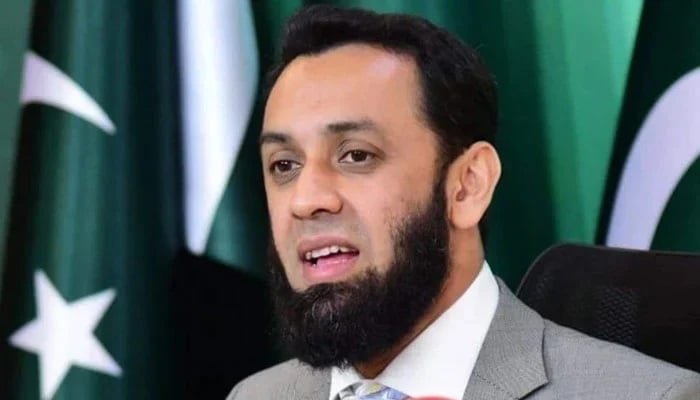
Minister of Information and Broadcasting Attaullah Tarar confirmed early Wednesday that the latest round of talks between Pakistan and the Afghan Taliban in Turkiye’s capital, Istanbul, had ended without any breakthrough.
“The dialogue thus failed to bring about any workable solution,” Tarar said in an X post after the four-day session ended.
He said Pakistan had long sought cooperation from Kabul against militants targeting the country.
“Ever since the assumption of control in Kabul, Pakistan has repeatedly engaged with the Afghan Taliban Regime regarding persistent cross-border terrorism by Indian-abetted Fitna al Khwarij (TTP) and Indian proxy, Fitna al Hindustan (BLA).”
Tarar added that Islamabad had asked the Taliban regime “time and again to fulfil their written commitments to Pakistan and to the international community in the Doha Agreement.”
However, he said, “Pakistan’s fervent efforts proved futile due to the Afghan Taliban Regime’s unabated support to anti-Pakistan terrorists.”
“The Taliban regime bears no responsibility towards the people of Afghanistan and thrives on a war economy,” he said, adding that it “desires to drag and mire the Afghan people into a needless war.”
“Pakistan has always desired, advocated and immensely sacrificed for peace and prosperity for the people of Afghanistan,” Tarar said.
“In the same spirit, Pakistan has held countless rounds of talks and parleys with the Afghan Taliban Regime, but unfortunately, they have always remained indifferent to Pakistan’s losses.
“Sadly, after sustaining such huge losses of men and material for four long years, Pakistan’s patience has run its course.”
He said Pakistan joined the talks in Doha and later Istanbul “to give peace a chance,” acting on the request of “brotherly countries of Qatar and Turkiye.”
The minister said Pakistan presented “sufficient and irrefutable evidence” of terrorist activity, which “was acknowledged by Afghan Taliban and the hosts,” but “regrettably, the Afghan side gave no assurances.”
“The Afghan side kept deviating from the core issue, evading the key point upon which the dialogue process was initiated. Instead of accepting any responsibility, the Afghan Taliban resorted to a blame game, deflection, and ruses,” Tarar said.
He thanked Qatar, Turkiye, and other friendly nations “for their support and sincere efforts to bring about a peaceful solution to the problem of terrorism.”
Tarar reaffirmed that Pakistan’s security comes first. “The security of its people is of paramount importance to Pakistan,” he said.
“We will continue to take all possible measures necessary to protect our people from the menace of terrorism and assure them that the Government of Pakistan will continue to employ all the resources which are required in this regard to decimate the terrorists, their sanctuaries, their abetters and supporters.”
Taliban stubbornness
The Pakistani delegation and Turkiye have been making a last-ditch effort to resolve the issue of cross-border terrorism through dialogue with the interim Taliban rulers in Istanbul, sources said.
Over the course of the week-long talks, the Afghan delegation repeatedly shifted its stance under instructions from Kabul, slowing progress.
On Monday, Pakistan and Afghanistan held 18 hours of discussions, moving the negotiations toward the final day.
Security sources said Pakistan had laid out clear, evidence-based counterterrorism demands, but the Taliban’s rigid refusal to cooperate and acknowledge ground realities continued to stall meaningful progress.
They said that the Afghan Taliban delegation acknowledged Pakistan’s demand for action against militants and terrorists operating from their soil. Still, they (Taliban) continued to change their stance on instructions from Kabul, the sources added.
Both agreed to a ceasefire brokered in Doha on October 19, but could not find common ground in a second round of talks mediated by Turkiye and Qatar in Istanbul, Afghan and Pakistani sources briefed on the issue said, according to Reuters.
A Pakistani security source said the Taliban had been unwilling to commit to rein in the TTP, which operates with impunity inside Afghanistan.
The sources added that the third day of the Istanbul talks held on Monday was marred by disagreements, with Pakistan insisting on its proposals while the Afghan delegation remained constrained by instructions from Kabul.
Mediators also recognised Pakistan’s demands as reasonable and legitimate, the sources said, adding that the Afghan negotiators themselves, interestingly, believed it was right to accept Islamabad’s counterterrorism demands.
Security sources said the Afghan Taliban kept taking directions from Kabul and repeatedly consulted the Afghan administration during the talks.
“The delegation appears to be under Kabul’s control, creating delays in progress,” they added.
According to the sources, Pakistan has consistently stressed that accepting its demands is in everyone’s interest, a point also conveyed to the Taliban side by the host countries.
Islamabad-Kabul tensions
The two neighbouring nations are witnessing heightened tensions amid the Afghan Taliban regime’s reluctance to act against terrorist groups operating from its soil, in the backdrop of rising terror attacks in Pakistan.
The tensions were escalated when the Taliban forces and India-backed Tehreek-e-Taliban Pakistan (TTP), alias Fitna al-Khawarij, resorted to an unprovoked attack on Pakistan on October 12.
The Pakistan Armed Forces gave a befitting response to the aggression, killing over 200 Afghan Taliban and affiliated militants in a self-defence action.
The military’s media wing, the Inter-Services Public Relations (ISPR), said that 23 soldiers embraced martyrdom in the clashes with the Taliban forces and the terrorists.
Furthermore, the security forces also conducted “precision strikes” in Afghanistan’s Kandahar province and the capital Kabul, as well as in the border areas of North and South Waziristan districts, successfully destroying multiple strongholds in response to the aggression.
The two sides had agreed on a temporary ceasefire during the Doha talks on October 19 and to hold further meetings to establish a permanent mechanism to ensure peace and stability.
—With additional input from Reuters







